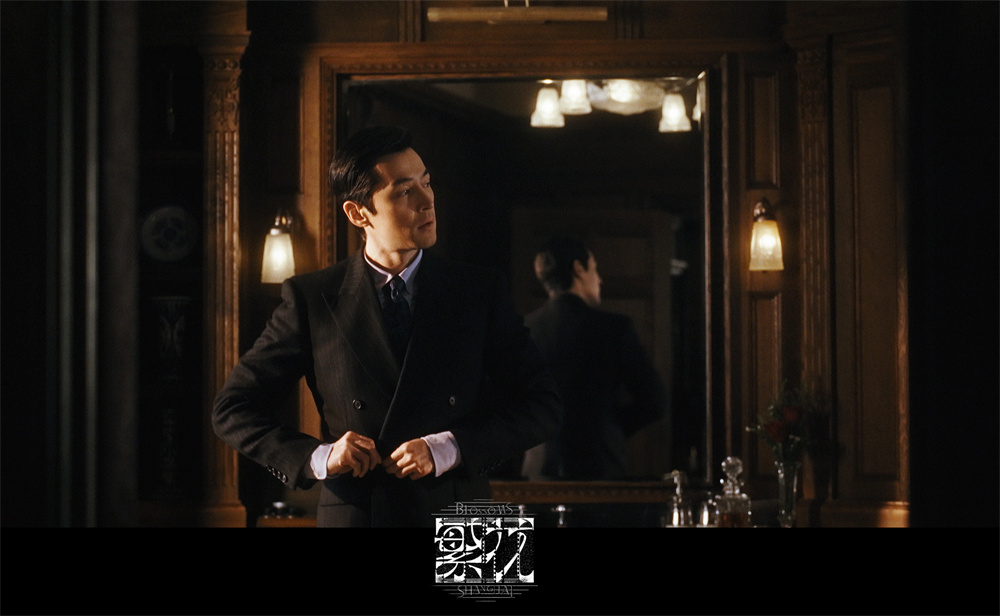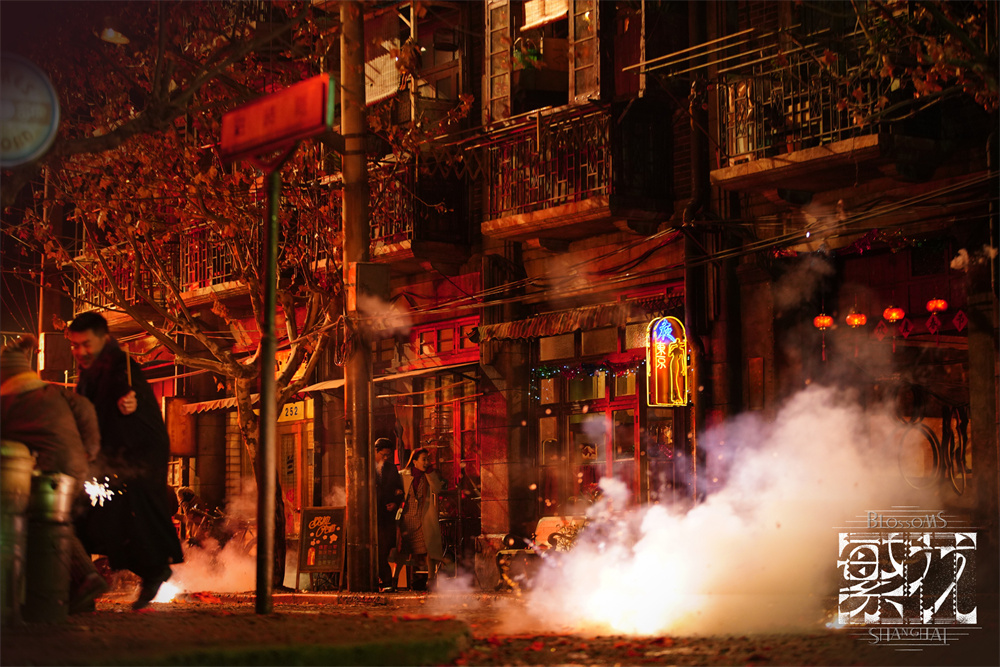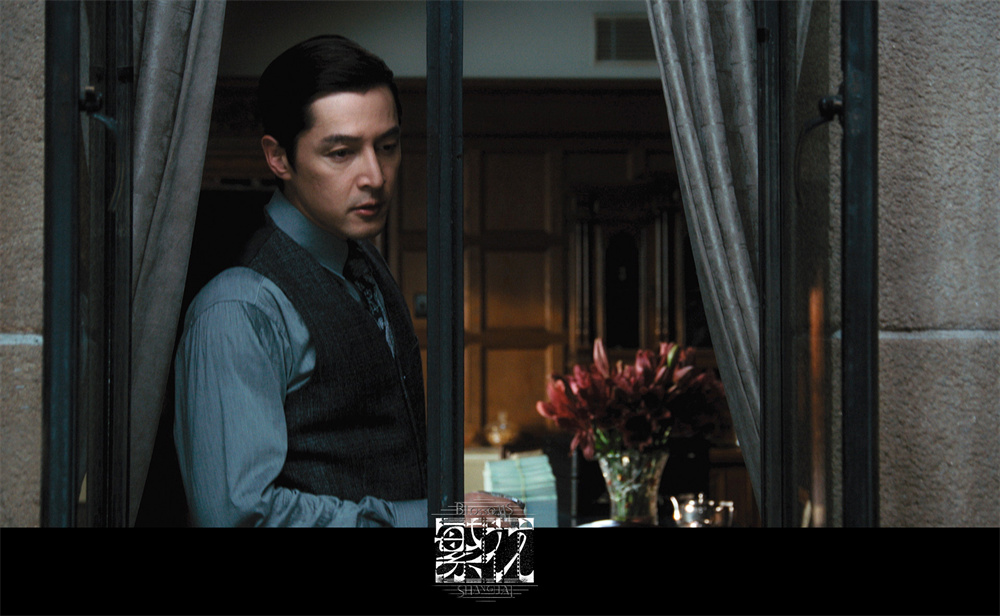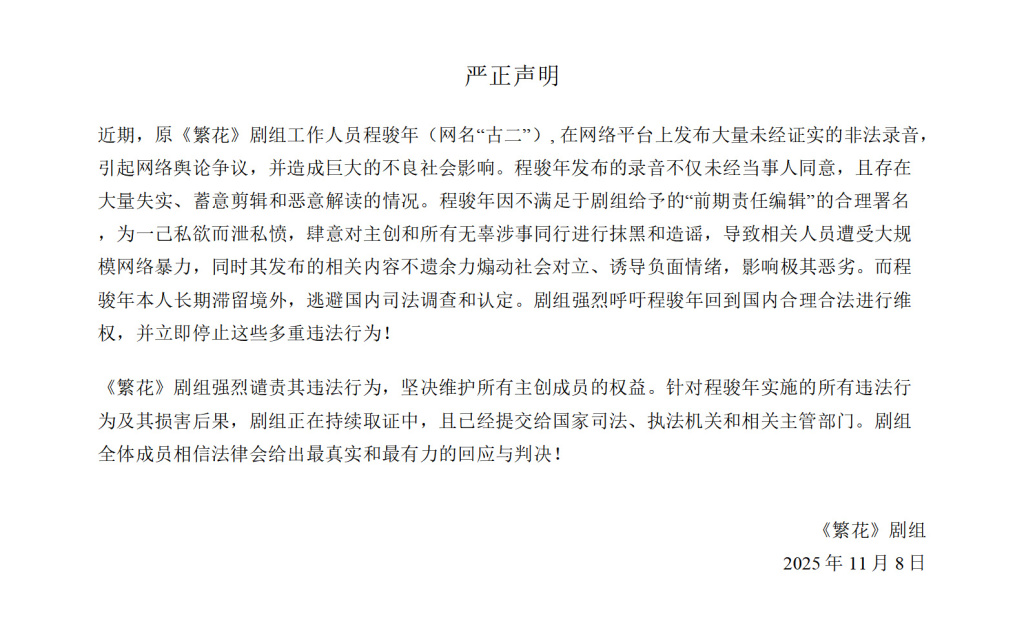
The TV series "Flowers", ever since Wong Kar-Wai bought the original work written by Kim Yu-cheng ten years ago, has aroused the appetite of the entire industry, various media outlets, ordinary audiences and Kar-Wai fans. Just like the words of Li Li, the character in Xin Zhilei's play: "Doing business in the world, whet the appetites of all parties." After four years of production, "Flowers" is premiering. Let's briefly talk about whether the appetites of these "four parties" have been satisfied now.

"Flowers" stills
First of all, from the perspective of the TV drama industry, "Flowers" has given a professional shock from art to photography, from director scheduling, editing rhythm to actor performance and costume styling.
Since the TV drama industry has been swept away by the "capital boom" for several rounds, investing hundreds of millions in a series is no longer a great gimmick, but when it is actually put out, it makes people feel that the money is well spent, which is rare. "Flowers" has done it, and you can tell at a glance: money is not wasted! Four years of waiting have not been in vain! Every shot has a movie quality, and every frame can be cut out and used as a desktop. Why was the preview screening of "Flowers" screened in a cinema? Because the big screen can better reflect its sophistication.
However, apart from Wong Kar-Wai, how many drama directors can achieve this kind of beauty on a knife's edge? From a positive perspective, for the TV drama industry, "Flowers" has expanded the aesthetics of drama creation. In recent years, there have been many works that have tried to expand the aesthetics of Chinese dramas, such as "The Long Season" and "Flowers in the City". "Part 2", but their creative methods and creative rhythm are still within the scope of TV drama creation. "The Long Season" will start shooting on December 22, 2021, and will be completed on April 7, 2022; "Under the City" will start shooting on March 31, 2022, and will be completed on June 10 of the same year, while "Flowers" used Four years.
It is said that slow work will produce fine work, but it is too slow and fatal. For the platform and the employer, Wong Kar-wai is worth waiting, but there is only one Wong Kar-wai. Most domestic drama creators still have to shoot seven or eight times a day for three to four months. pages, it is impossible to polish scene by scene like film creation. Therefore, Wong Kar-wai has indeed created an aesthetic "sample" for TV series, but whether this "sample" can provide creative experience that the industry can learn from is still a question mark.

"Flowers" stills
At present, it seems that there is no problem in repaying the cost of the drama. Not to mention the commercials, the product placement was also beautifully photographed by Director Wang, who is very detail-oriented. The Estee Lauder facial cream and lipstick in the Jinxian Road shop were all photographed. Blockbuster enough. In addition, the drama's popularity on Tencent Video has exceeded 26,000. If "Flowers" becomes a big hit, will the industry be willing to give TV drama creators more time to polish their works? Freer creative possibilities? Like the entire industry is as kind and tolerant to Wong Kar-Wai? I don't think so. But TV drama practitioners can really learn from Wong Kar-Wai, not only to polish their works to be worthy of the audience, but also to be worthy of investors and advertisers, spend money responsibly, and make money with conscience.

"Flowers" stills
Some viewers who prefer the original work of "Flowers" said: "If you put down the original work of "Flowers," then the TV series "Flowers" is still very good." This evaluation is more pertinent, because the drama version of "Flowers" is indeed highly adapted. There are not many descriptions of the scene. The sensuality and colorful lights of the 1990s are mainly presented through the dialogue on the running water table. The dialogue in Shanghainese has hidden glances and sharp aftertaste. If the original work is a bowl of rice in the alley market, the drama version is indeed the Yellow River. The abalone and lobster on the road have lost the taste of urban life and have a strong taste of legends from the past. But that might not be a bad thing.
It can be said that the drama version of "Flowers" is no longer a taste of life in Shanghai, but a history of struggle and spectacle. This kind of adaptation is successful in the author's opinion, because the beauty of the novel "Flowers" is the beauty of language. The story gives way to the language itself, which is interesting, but it is only for reading and difficult to visualize. The drama version can combine the story and the text. It is not easy for the characters to return to the core of the narrative.
For ordinary audiences, especially audiences across the country outside of Shanghai, the spectacle and the history of one person's struggle are of course more watchable. "The waves are flowing, and the waves of the river are endless."

"Flowers" stills
Finally, let’s talk about Kar Wai’s fans. Since his debut, Wong Kar-Wai has relied on his personal style to accumulate a large number of fans who are fans of literary and artistic films. Although Kar-Wai's fans do not have the fighting power of today's star fans, most of them have their own fixed expectations for Kar-Wai, such as aesthetic style and character tone. , such as the "flavor" of a large number of narrations. "Flowers" is very Wong Kar-Wai, fans can rest assured.
However, movies and TV series still have essential differences in their media forms. The unique aesthetic style in Wong Kar-wai's works is designed to serve the big screen of theaters. If "Flowers" is watched in a theater, the visual experience will be more than double that of watching it on the small screens of televisions, computers, and mobile phones.
The narrative of TV series is different from that of movies. The narrative of TV series requires a clear main line, and the narrative should not switch back and forth as much as possible. It's not that it serves the audience's "eating mentality" and double-speed habit when watching dramas. After all, good dramas should be watched seriously; but the complex and jumping narrative method tests the audience's concentration and understanding. A 90-minute movie can be free in its narrative. The audience can slowly interpret and interpret it after leaving the theater, and it is full of fun. Even some of today's high-quality short dramas can also play with this kind of exquisite and complex narrative.
But the long series has thirty or forty episodes and is updated every day. Watching Wong Kar Wai for two hours a week is a pleasure. Two hours a day. "30 hours of movies are too much to bear," a post-85s Shanghainese and old Wong Kar Wai fan sighed. Of course, the author feels that it is this old fan who has changed, not Ka Wai. Ka Wai is still the same Ka Wai. It is just that the times have changed several times. It is difficult to say how much time, energy and mood old writers and artists still have to appreciate literature and art.
The 1990s in "Flowers" is very beautiful, with graceful demeanor, high-spirited and unrestrained, rich friendship, and social events. I can appreciate the beauty of the big screen on the small screen, I hope you can appreciate it carefully.


